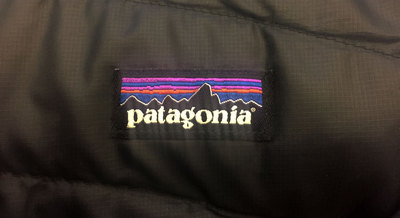It's hard to believe that there are 32 million slaves today and that human trafficking is a $150 billion industry. The reality is that the products we buy perpetuate slavery in some way, shape, or form because it is in the coffee we drink, chocolate we eat, and cotton we wear.
As the co-founder and president of Nomi Network, a non-profit that provides training, employment channels, and opportunities for upward mobility to survivors and women at risk of human trafficking, I often get asked where should I shop to help empower women and not enable slavery?
Based on popular demand, I am launching a weekly blog "I Am Free," highlighting one product every Friday. I will share a product I HEART from the human rights lens and describe the WHY behind the product.
This week, I want to highlight my Patagonia vest. Spring is here, but I am thankful that this down feather vest kept me warm all winter long, especially on those early morning jogs. Brands like Patagonia offer a glimmer of hope at decreasing child or forced labor in the industry. Check out their policies and corporate resources that are in place, making a difference in the lives of producers:
1. Human rights are built into the DNA of the company and not a CSR gimmick. Patagonia's Supply Chain Social Responsibility department has the power to veto a vendor or factory if they do not comply with the company's human rights metrics. Other brands source produces based on quality, price and economies of scale, often time squeezing the margins so tight that factory conditions are never top of mind.
2. The company pays a premium for every Fair Trade Certified item they buy. The money is kept in an account controlled by factory workers, where the workers decide whether the funds are used as a bonus or for development projects within in the community.
3. Products cost more but last longer. For example, seams go through rigorous stress testing, up to 50 pounds. Consumers do not have to buy new products after 3 or 4 washes as with fast fashion companies.
4. Patagonia's Raw Materials Social Responsibility Program requires full transparency in their supply chain. Not only does the company demand quality fabrics, trims, and raw materials, they require their suppliers to track their own supply chains, maintains a Chemical and Environmental Impacts Program, and also requires their materials suppliers to track hiring practices, employee grievances, and other social and environmental responsibility indicators. Even the sheep are treated well, and Patagonia ensures that the animals at the sheep farms are well taken care of.
5. The company does not ignore or hide human rights abuses found in their supply chain. After learning that their fabric mills in Taiwan were engaged in human trafficking of migrant workers, Patagonia required their suppliers to repay these workers the exorbitant recruitment fees they were charged and put an end to the practice of charging recruitment fees altogether. Seldom do brands even acknowledge verification at the fabric mill level.
As consumers, we should reward good companies like Patagonia for doing the right thing and bringing high quality products to market.


